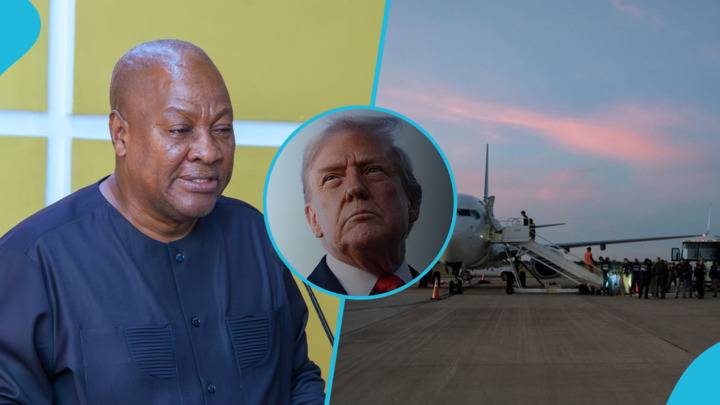President John Mahama has confirmed a major and controversial shift in American immigration policy that directly involves Ghana. He stated that Ghana has agreed to accept citizens from other West African nations who are being deported from the United States under the Trump administration's crackdown. This move places Ghana at the center of a complex international issue, balancing regional solidarity with significant domestic challenges.
This decision means Ghana is now receiving deportees who are not its own citizens. Many of these individuals are being sent to a country they may have never even visited before, as the U.S. policy involves deporting people to third countries. President Mahama confirmed that a "first batch" of 14 people had already arrived in Ghana. This group included several Nigerians, who have since returned to their home country, and one person from The Gambia.
For the people being deported, this is a life-altering and traumatic event. Many had built lives, careers, and families in the United States over many years. Being suddenly uprooted and sent to a new country without a support system leaves them in a state of crisis, needing immediate help with housing, food, and legal status. Their plight is the human heart of a larger political decision.
The agreement comes at a time when the U.S. is applying significant pressure on several African nations. Washington has recently hiked tariffs on Ghanaian goods and restricted visas for its citizens. Neighboring Nigeria has publicly pushed back against accepting third-party deportees. Its Foreign Minister, Yusuf Tuggar, expressed difficulty with the idea of accepting "Venezuelan prisoners" from the U.S., suggesting recent tariff threats were related to the deportation issue.
This situation also unfolds against a backdrop of existing social tension within Ghana. Recent weeks have seen sporadic anti-Nigerian protests in several cities, with some demonstrators blaming Nigerian immigrants for crime and unfair economic competition. This led to the Nigerian government sending a special envoy to Ghana in late July to urge calm. President Mahama has previously sought to calm these fears, assuring a Nigerian envoy that Ghana has no intention of mass deportations and values the ECOWAS protocol on free movement.
The government's decision has sparked a fierce public debate. Many Ghanaians are questioning why their country is bearing this burden. They are concerned about the economic cost of housing and processing these individuals and the potential strain on national resources. There are also serious questions about the details of the agreement with the U.S. and whether it was made in the best interest of the Ghanaian people, with citizens calling for full transparency from the government.
This event shows how the immigration policies of a powerful nation like the United States can create direct ripple effects across the globe. Ghana is now forced to navigate the difficult consequences of a decision made in Washington. The government faces the dual challenge of managing this process humanely while addressing the legitimate concerns of its own citizens. How it handles this delicate balance will be a true test of its diplomacy and its commitment to both regional brotherhood and national interest.




No comments yet
Be the first to share your thoughts!